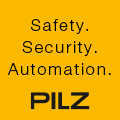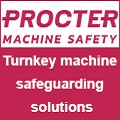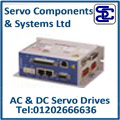
Posted to News on 11th Apr 2018, 09:30
Putting the customer at the centre of your digital strategy
Colin Masson, global industry director of manufacturing solutions at Microsoft and a strategic advisor to major automation vendors such as Invensys and Rockwell Automation, says manufacturers need to break down internal barriers to deliver highly tailored products and services.
It is easy to get obsessed with technology - it is the key enabler of today's revolution - but the harder part of the transformation is cultural.
It is about putting the customer experience and their business outcomes at the centre of everything. That means realigning engineering, manufacturing and the supply chain around delivering a world-class sales and service experience. It means new thinking about optimising customer satisfaction and loyalty metrics such as Customer Satisfaction Scores or Net Promoter Scores rather than production efficiency.
The list of technologies that can help this realignment is endless. Manufacturers should be investing in, or at least exploring, the internet of things (IoT) and industrial automation, cloud, big data, artificial intelligence (AI), robotics, 3D printing and more. Microsoft partner Columbus recently published a major industry report [Manufacturing in 2020: How far are you looking into the future?] exploring how these emerging technologies fit into the wider digital transformation push of manufacturers, as part of a 'Manufacturing 2020' strategy.
But at the heart of the revolution is data. We are putting telemetry on everything, creating a data-driven culture with a single version of the truth. Fundamentally the fourth industrial revolution (4IR or Industry 4.0) is being powered by the ubiquity of IoT data coming from sensors in the factory combining with data pouring in from the outside world, such as the wealth of information being generated by smart cities, smart buildings, smart offices and even connected cars. Choosing an IoT platform is a big decision; start by identifying one that can match the scale of your ambitions.
Digital convergence
There is another convergence that is driving business transformation. Inside the firm, the digital technologies used by IT, operations and engineering are converging. By embracing the digital transformation, manufacturers are empowering employees to be more productive in modern workplaces with apps and intelligent working methods such as the use of cobots, where employees and robots co-operate 'shoulder to shoulder'.
It is also about optimising operations through smart factories and supply chains powered by intelligent edge and cloud. It means the transformation of products and business models, using insights from smart connected products, advances in modelling such as 'digital twins' and more agile end-to-end business systems.
Servitisation
We see manufacturers, and individual businesses within manufacturing organisations, at various stages in their journey to servitisation, transforming products into services. Some are driving more customer engagement through traditional call centres or differentiating their product through (sometimes IoT-connected) field service. Increasingly, though, we are also seeing the transition to full 'product-as-a-service', where they sell flying hours instead of jet engines; car coatings rather than paint; water savings rather than treatment plants; and cleaning services rather than cleaning chemicals.
This journey requires that they break down the silos between internal systems such as ERP, CRM, PLM, and SCM. Instead, they need to connect 'things' - people, data and processes - with more agile systems of intelligence that can keep pace with the new speed of business inherent in delivering highly tailored products and services.
Manufacturers need smart factories that can make their smart products and be at the core of much more agile supply chains. They also need intelligent shop floor systems and business apps that augment people and address the growing skills gap in manufacturing.
Insights from data and AI
IoT platforms are a key enabler, yes. But we also need big data and AI on top to provide the insights that line workers and business decision-makers need. We need both intelligent cloud and intelligent edge technologies to power robots and cobots in the factory of the future.
Big data also needs big compute to accelerate the product innovation unleashed by enhanced insights into customers, enabled by the ability to iterate through digital twins of devices, product designs, supply chains, and customer usage in digital cities. Can your legacy ERP, CRM, PLM and SCM systems keep up with the new speed of business?
At the heart of this digital world, however, lies the simplicity of customer insight. Whether you have got a smart product that can beam back data on customer use, or you use traditional client engagement channels, it is those insights that will differentiate your future products and services - and decide the success or failure of your digital transformation.
Follow the link to read the Columbus report Manufacturing in 2020: How far are you looking into the future?.















